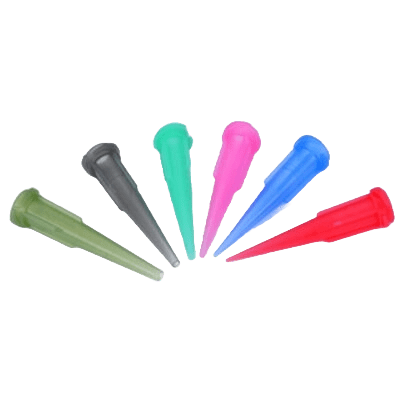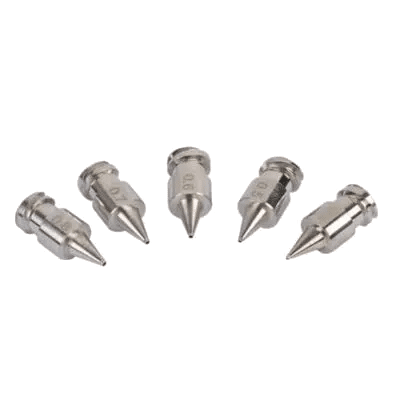Dispensing needles play a crucial role in various industries, from manufacturing and healthcare to electronics and automotive applications. These needles come in a wide array of types and configurations, and the choice of the right needle is essential for ensuring efficient and precise dispensing. But why do dispensing needles have so many types? Let’s delve into the reasons behind this diversity.

1. Viscosity and Material Compatibility
One of the primary reasons for the multitude of needle types is the vast range of materials that need to be dispensed. Different substances, like liquids, adhesives, pastes, and gels, have varying viscosities and flow properties. To accommodate these differences, dispensing needles are designed with specific bore diameters and lengths. Thicker materials may require larger or tapered needles, while thinner fluids may need fine-gauge needles for optimal performance.
2. Precision and Accuracy
Precision is vital in applications such as microelectronics assembly and medical device manufacturing. For tasks that demand utmost accuracy, needles with fine tips and smaller diameters allow for better control and precise placement of tiny droplets or lines.
3. Volume Control
The volume of the material to be dispensed is a critical factor in choosing the right needle. Longer needles may be employed when a larger volume is required, while shorter needles are suitable for smaller, more controlled dispenses. Volume control is essential to prevent waste and ensure the desired results.
4. Dispensing Pattern
Different applications require specific dispensing patterns, such as dots, lines, or even coatings. Various needle types, like tapered, conical, or flat tips, are designed to achieve these patterns. The choice of needle tip can greatly impact the appearance and functionality of the final product.
5. Material Properties
The material properties of both the needle and the substance being dispensed are crucial. Some materials can corrode or react with specific metals, so selecting the right needle material is essential to prevent contamination or damage to the material. Needle materials may include stainless steel, plastic, or specialized alloys to suit the application.
6. Environmental Factors
The operating environment can also influence the choice of needle type. High-temperature environments, exposure to corrosive chemicals, or other challenging conditions may necessitate specialized needles that can withstand these factors.
7. Application Specifics
Certain industries, such as medical, aerospace, or automotive, have unique requirements that call for specialized needle types. Custom-designed needles may be necessary to meet the specific demands of these applications.
8. Reusability
Some needles are designed for single-use applications, while others can be cleaned and reused. The choice of needle type may depend on whether disposability or reusability is preferred, taking cost and sustainability into consideration.
9. Cost Considerations
Cost is often a critical factor in selecting the right needle type. The cost can vary based on factors such as material, design, and manufacturing processes. A cost-benefit analysis is essential to ensure the most economical solution for the application.
Conclusion
In conclusion, the diversity of dispensing needle types serves to meet the unique needs of various industries and applications. Selecting the appropriate needle type is crucial for achieving precise and efficient dispensing, while considering factors like material compatibility, volume control, and the specific requirements of the application. Understanding these factors can help you make an informed choice when it comes to dispensing needles, ultimately contributing to improved product quality and efficiency in your processes.

